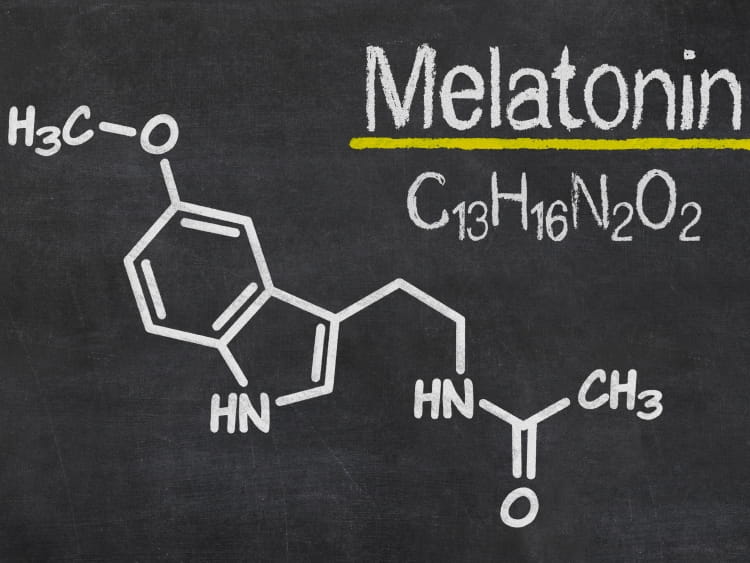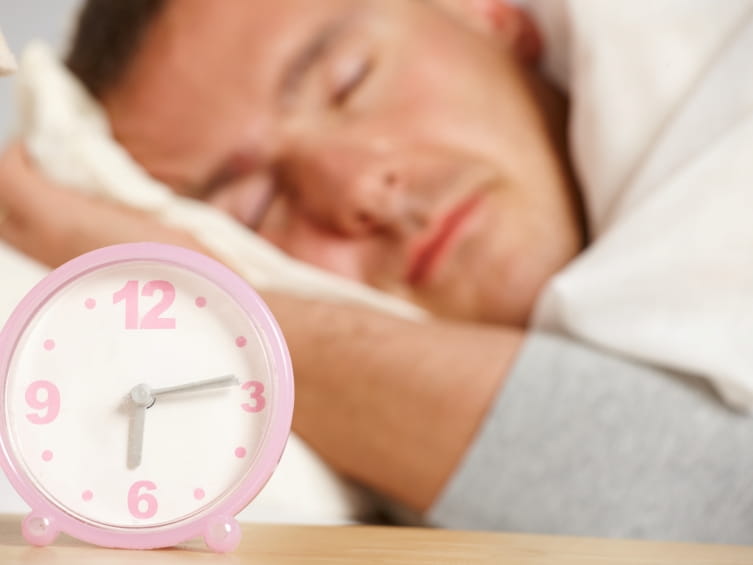Took Too Much Melatonin? Effects and Interactions

The Bottom Line
Melatonin occurs naturally in the body and is involved in the natural regulation of sleep. Melatonin is sometimes used as a dietary supplement to help people sleep. Like other dietary supplements, there are few studies that have examined its effectiveness. Toxicity from melatonin appears to be mild.

The Full Story
Melatonin is a hormone naturally produced by the body to help regulate the normal sleep-wake cycle. Release of melatonin is stimulated by the presence of darkness and normally begins around 9 pm. Melatonin release is inhibited by light. It isn't just sunlight that prevents melatonin from being released. Light from lamps, TVs, computers, and e-readers can inhibit the normal release of melatonin and alter the sleep-wake cycle.
Unlike prescription medications, which require rigorous study before being made available, dietary supplements like melatonin are not regulated by the U.S. Food & Drug Administration (FDA). As a result, high-quality evidence of the effectiveness and safety of dietary supplements is often lacking. Most studies with melatonin have been small, which makes applying their results to real life difficult. It appears that melatonin might have some effectiveness for treating short-term insomnia and changes in bedtime like jet lag or changing working hours.
Melatonin dosing has not been standardized by an FDA-regulated process, so recommendations vary between products. Typical doses for insomnia are 1 to 5 mg of melatonin taken 1 hour before intended bedtime and might be effective in reducing the time it takes to fall asleep or increasing the duration of sleep. For jet lag, 5 mg of melatonin taken 1 hour before intended bedtime for up to 4 days after a flight might help in adjusting to a new time zone.
Since dietary supplements are not regulated by the FDA like prescription and over-the-counter medications, it is possible for supplements to contain little to none of their labeled product or to be contaminated. Avoid using products that have not been independently verified for quality and purity by the U.S. Pharmacopeial Convention (USP). The gold USP seal on a label indicates that: the product was properly manufactured and that it actually contains the ingredients in the amount on the label, it does not contain unsafe amounts of contaminants, and it will be released in the body within an appropriate amount of time. USP verification, however, does not mean that the supplement will do what the manufacturer claims.
Melatonin is known to interact with some over-the-counter and prescription medications including antidepressants, antibiotics, antihistamines, and even other supplements. You should talk with your physician and pharmacist before taking melatonin to determine if it might interact with your other medications. Side effects of melatonin are uncommon and generally mild such as headache, dizziness, nausea, daytime sleepiness, mild depression. Overdoses of melatonin are likely to produce these same effects.
In 2020, melatonin was the leading substance reported to the webPOISONCONTROL online tool, the app that helps users decide whether it’s safe to stay home, what to watch for, and what to do after taking too much of a substance. Melatonin was implicated in 7,142 or 4.5% of all webPOISONCONTROL cases that year. That same year, phone-based Poison Control received more than 59,300 calls seeking help for melatonin ingestions. Calls to Poison Control about melatonin ingestions almost tripled from 2015 to 2020.
Took too much melatonin? Use the webPOISONCONTROL® online tool for guidance or call Poison Control at 1-800-222-1222.
Alicia Lopez
PharmD candidate
Pela Soto, PharmD, BSHS, BS
Certified Specialist in Poison Information
Poisoned?
Call 1-800-222-1222 or
Prevention Tips
- Talk with your physician and pharmacist before taking melatonin.
- Start with a low dose and increase slowly if needed.
- Use only USP Verified products.
This Really Happened
A 66-year-old man regularly took 6 mg of melatonin every evening. He increased the dose to 24 mg (4 times his usual amount) the night before surgery to help him relax and sleep. Within 20 minutes of taking the melatonin, he felt lethargic and disoriented and was alarmed enough to call Poison Control.
Poison Control monitored him at home through follow-up calls to his wife. After 5 hours of sleep, he awoke appearing "drugged" and could not recall the previous evening. Since he was scheduled for surgery, he was advised to inform his surgeon about his recent melatonin use and its effects.
His surgery was successful and he recovered quickly. Once at home, he resumed using 6 mg melatonin in the evening without problems.
From South Med J. 1997;90:451-3.
For More Information
The National Sleep FoundationSleep.org, a publication by the National Sleep Foundation discussing sleep health
References
Holliman BJ, Chyka PA. Problems in assessment of acute melatonin overdose. South Med J. 1997;90:451-3.
Saxvig IW, Wilhelmsen-Langeland A, Pallesen S, et al. A randomized controlled trial with bright light and melatonin for delayed sleep phase disorder: effects on subjective and objective sleep. Chronobiol Int. 2014;31:72-86
Schutte-Rodin S, Broch L, Buyesse D, et al. Clinical guideline for the evaluation and management of chronic insomnia in adults. J Clin Sleep Med. 2008;4:487-504.
Srnivasan V, Spence DW, Pandi-Perumal SR, et al. Jet lag: therapeutic use of melatonin and possible application of melatonin analogs. Travel Med Infect Dis. 2008;6:17-28.
Poisoned?
Call 1-800-222-1222 or
Prevention Tips
- Talk with your physician and pharmacist before taking melatonin.
- Start with a low dose and increase slowly if needed.
- Use only USP Verified products.
This Really Happened
A 66-year-old man regularly took 6 mg of melatonin every evening. He increased the dose to 24 mg (4 times his usual amount) the night before surgery to help him relax and sleep. Within 20 minutes of taking the melatonin, he felt lethargic and disoriented and was alarmed enough to call Poison Control.
Poison Control monitored him at home through follow-up calls to his wife. After 5 hours of sleep, he awoke appearing "drugged" and could not recall the previous evening. Since he was scheduled for surgery, he was advised to inform his surgeon about his recent melatonin use and its effects.
His surgery was successful and he recovered quickly. Once at home, he resumed using 6 mg melatonin in the evening without problems.
From South Med J. 1997;90:451-3.
